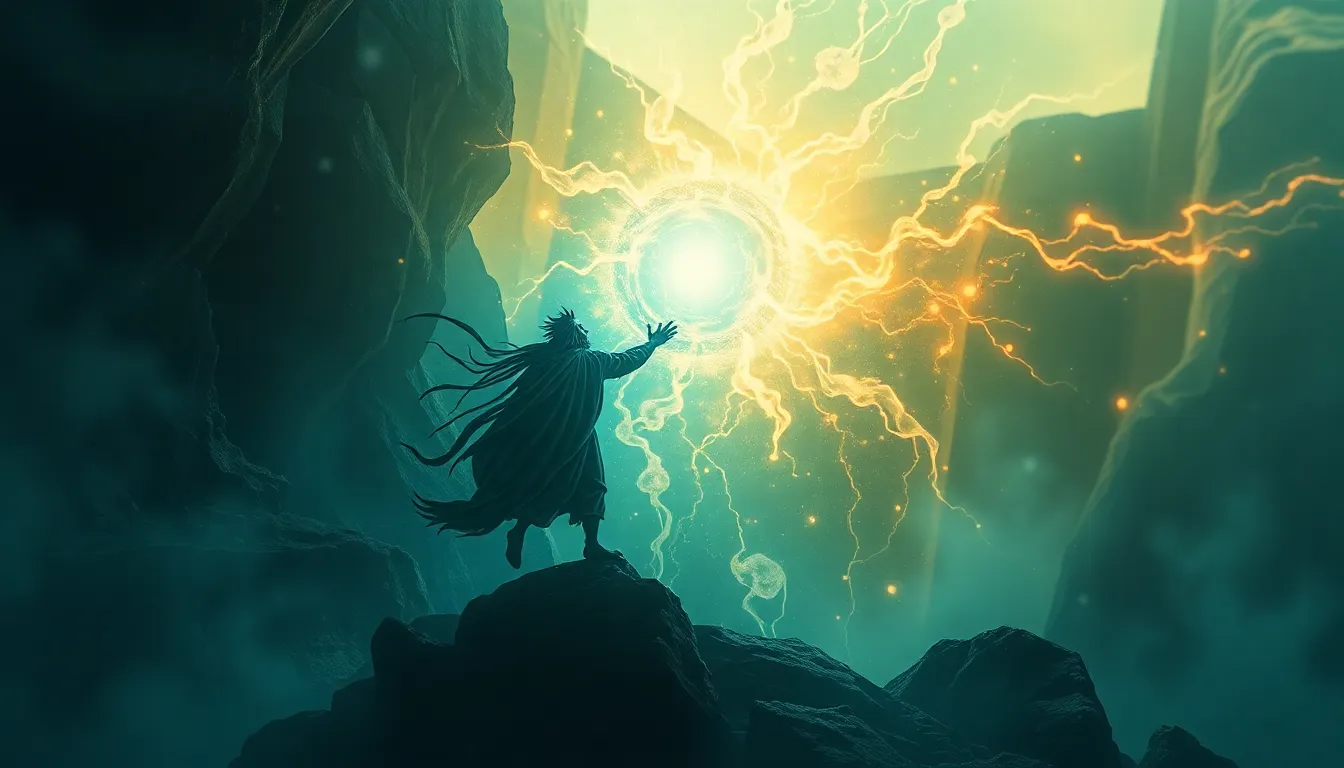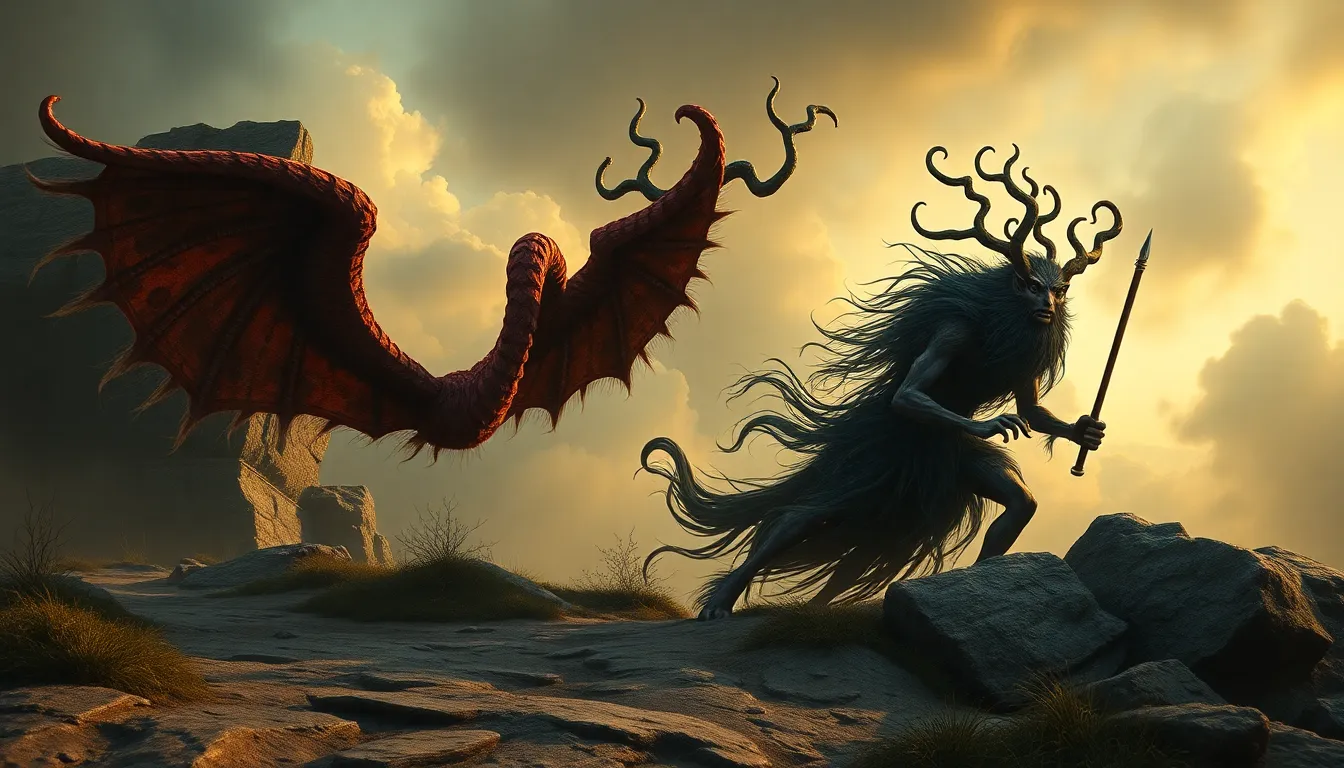The Essence of Transformation: Myths That Capture the Human Experience
Introduction to Transformation and Mythology
Transformation is a fundamental aspect of the human experience, representing the profound changes individuals undergo throughout their lives. It encompasses personal growth, identity shifts, and the evolution of one’s understanding of the world. Myths, in this context, serve as powerful narratives that shape cultural identities and personal journeys, providing frameworks through which we interpret our experiences.
This article explores the essence of transformation within mythology, examining how these age-old stories reflect universal themes of change and growth. By delving into the nature of myths, their significance, and the transformative figures and narratives they present, we aim to uncover the lessons they impart about the human condition.
The Nature of Myths: Understanding Their Significance
Myths are traditional stories that explain the beliefs, customs, and natural phenomena of a culture. They often feature gods, heroes, and supernatural events, serving as metaphors for human experiences and existential questions.
- Myth vs. Folklore: Myths are often distinguished from folklore in that they tend to involve divine beings and explain the origins of the world, while folklore encompasses common stories, legends, and traditions passed down through generations.
- Psychological and Social Functions: Myths fulfill essential psychological and social roles by offering explanations for complex realities, fostering community bonds, and providing frameworks for understanding personal and collective identities.
Universal Themes of Transformation in Myths
Across cultures, myths often explore common themes of transformation, highlighting archetypes and motifs that resonate with the human experience. One such framework is the hero’s journey, a narrative structure that outlines the stages of personal growth and transformation.
Some common archetypes include:
- The Hero: Represents courage and the willingness to embark on a transformative journey.
- The Mentor: Provides guidance and wisdom to the hero during their quest.
- The Threshold Guardian: Represents obstacles and challenges that must be overcome for transformation to occur.
Examples of transformation themes can be found in various cultures, such as:
- The transformation of the Greek goddess Persephone, who transitions from maiden to queen of the underworld.
- The story of Buddha, who undergoes a profound transformation from prince to enlightened being.
- The Native American tale of the transformation of the coyote, symbolizing adaptability and change.
Mythological Figures of Transformation: Case Studies
Several mythological figures exemplify transformative journeys that offer valuable insights into change and growth. Analyzing these figures helps us understand the lessons embedded in their narratives.
- Persephone: Her descent into the underworld and subsequent return symbolize the cyclical nature of life, death, and rebirth, illustrating the power of transformation through adversity.
- Prometheus: The titan who defies the gods to bring fire to humanity undergoes a transformation of his own, embodying the theme of sacrifice and the pursuit of knowledge.
- Buddha: His journey from a life of luxury to enlightenment emphasizes the transformative power of introspection and the quest for spiritual awakening.
The Role of Conflict and Resolution in Transformation
Conflict often serves as a catalyst for transformation in myths, highlighting the importance of overcoming adversity. This process of grappling with challenges leads to personal growth and change.
For example:
- The Odyssey: Odysseus’s arduous journey home is fraught with conflict, teaching resilience and the importance of perseverance.
- The Tale of Job: Job’s trials and tribulations illustrate the theme of suffering and the potential for transformative faith and redemption.
Rituals and Transformation: Bridging Myth and Reality
Rituals play a crucial role in facilitating both personal and communal transformation, often rooted in the myths of a culture. These ceremonies provide a structured approach to experiencing change, helping individuals navigate significant life transitions.
- Rites of Passage: Such rituals, like coming-of-age ceremonies, mark the transition from one life stage to another, underscoring the importance of transformation.
- Religious Ceremonies: Many religious practices involve rituals that symbolize death and rebirth, echoing the themes present in myths.
Case studies of transformative rituals can be found in various cultures, from the initiation ceremonies of Indigenous tribes to the baptismal rites in Christianity, each reflecting the mythological underpinnings of transformation.
Modern Interpretations of Mythical Transformations
Contemporary literature, film, and art often reinterpret ancient myths, making their themes relevant in today’s fast-paced, change-oriented society. These modern narratives resonate with audiences, reflecting ongoing struggles and transformations.
Examples include:
- Superhero Stories: Characters like Spider-Man and Wonder Woman embody the hero’s journey, facing personal and external conflicts that lead to transformation.
- Coming-of-Age Films: Movies like “The Breakfast Club” and “Lady Bird” depict the transformative experience of adolescence, emphasizing the challenges and growth that come with this period.
Psychological Perspectives on Transformation Through Myths
Psychology offers valuable insights into the importance of myth in personal development. Myths help individuals navigate life transitions, providing a framework for understanding complex emotions and experiences.
- Life Transitions: Myths can guide individuals through significant life changes, such as adolescence and midlife crises, offering narratives that resonate with their struggles.
- Therapeutic Applications: Counselors often use mythological narratives as therapeutic tools, helping clients understand their personal journeys through the lens of these timeless stories.
Challenges and Misunderstandings of Transformation Myths
Despite their profound insights, there are common misconceptions about transformation in myths. Oversimplifying complex narratives can lead to misunderstandings and reinforce negative stereotypes.
- Oversimplification: Reducing myths to mere moral lessons can strip away their deeper meanings and cultural significance.
- Reinforcement of Negative Narratives: Some myths may inadvertently perpetuate harmful stereotypes, illustrating the need for careful interpretation and understanding.
Conclusion
The exploration of transformation through the lens of mythology reveals the rich tapestry of human experience. Myths not only provide insight into our individual journeys but also reflect the collective consciousness of cultures throughout history. By understanding these narratives, we can better appreciate the transformative power of change in our lives.



